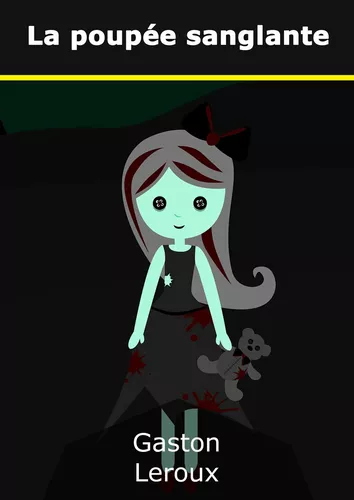Skip to the end of the images gallery Nav bascule
Skip to the beginning of the images gallery Nav bascule

La poupée sanglante
ePUB
502,8 KB
DRM : filigrane
ISBN: 9782322171767
Éditeur : Books on Demand
Date de parution : 29.03.2019
Langue: français
2,49 €
TVA incluse
Téléchargement disponible dès maintenant
Merci de noter que cet ebook ne peut pas être lu par une liseuse Kindle d’Amazon, mais seulement par des appareils qui peuvent prendre en charge des fichiers au format ePub. En savoir plus
Votre propre livre !
Devenez auteur avec BoD et vendez votre livre et votre ebook en librairie.
En savoir plusAu moment où Leroux compose La Poupée sanglante (1923), la France est encore sous le choc du procès d'Henri Landru, qui sert de déclic à la genèse du roman.
Mais se contenter d'un héros devenu tueur en série par simple cupidité aurait été indigne de l'imagination de Leroux. Il a donc fait du relieur Masson l'instrument d'un grand dessein qui le dépasse: le mystère de la vie et de la mort. Leroux dépoussière les vieux mythes de Dracula et Frankenstein, les débarrasse de leurs artifices gothiques et les modernise grâce à un habillage scientifique. Benedict Masson ne proclame-t-il pas: " De nos jours le vampirisme ne peut être que scientifique...
"Une des meilleures oeuvres de Gaston Leroux, trop souvent méconnue au profit des Aventures de Rouletabille ou de Chéri-Bibi.
Mais se contenter d'un héros devenu tueur en série par simple cupidité aurait été indigne de l'imagination de Leroux. Il a donc fait du relieur Masson l'instrument d'un grand dessein qui le dépasse: le mystère de la vie et de la mort. Leroux dépoussière les vieux mythes de Dracula et Frankenstein, les débarrasse de leurs artifices gothiques et les modernise grâce à un habillage scientifique. Benedict Masson ne proclame-t-il pas: " De nos jours le vampirisme ne peut être que scientifique...
"Une des meilleures oeuvres de Gaston Leroux, trop souvent méconnue au profit des Aventures de Rouletabille ou de Chéri-Bibi.
Rédigez votre propre commentaire






Il n'y a pour le moment pas de critique presse.